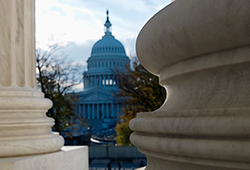 Back in March, 2016, the Senate added language to the FDA and NIH Workforce Authorities Modernization Act which would exempt biological products, including biosimilars, from provisions of the FDCA Act that require compliance with official compendia. This language includes compliance with the quality standards listed in the United States Pharmacopeia (USP).
Back in March, 2016, the Senate added language to the FDA and NIH Workforce Authorities Modernization Act which would exempt biological products, including biosimilars, from provisions of the FDCA Act that require compliance with official compendia. This language includes compliance with the quality standards listed in the United States Pharmacopeia (USP).
In April, the chief executive officer of the USP released a statement that, while the new provision has “been characterized as one that would spur innovation,” it “unravels a critical piece of the overall safety net for these drugs.”
Then, in May, ten groups, including APhA (American Pharmacists Association), The Biosimlars Council, and The United States Pharmacopeial Convention, wrote a letter to the Chairman of the U.S. Senate Committee on Health, Education, Labor and Pensions, expressing their opinion that, if enacted, the “provision would have potentially grave consequences for public health and would hinder, rather than support, our shared goal of getting safe and effective biosimilars to market.”
Recently, on June 15, 2016, the USP released a white paper that may be intended to influence this debate. In it, the USP extolls the role of public drug quality standards in facilitating biosimilar approval, access and acceptance in Europe. Says the USP: “Given that the sponsors of all biosimilars approved in Europe relied on public standards to develop their products, the existence of such quality standards is clearly useful and beneficial. Public standards help sponsors develop biosimilars (and all biologics) more quickly, efficiently, and at lower cost, enabling multi-manufacturer markets for biological products. This helps close the gap for unmet patient needs, ensure the safety of medications and reduce overall healthcare costs.”
Stay tuned to the BigMoleculeWatch for updates to this proposed bill.
